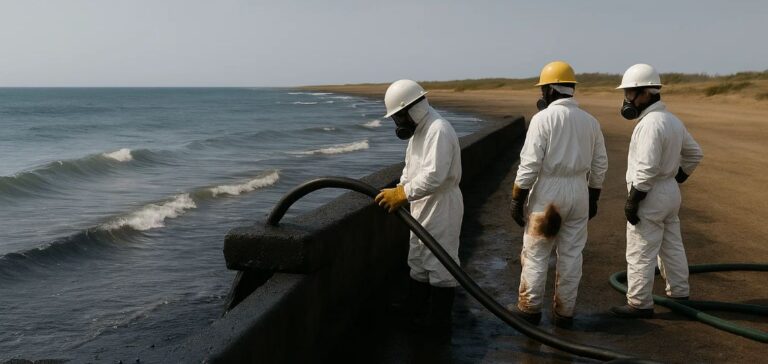Guyana’s Parliament has approved a new oil pollution bill that now holds oil operators fully liable for damages resulting from oil spills, including those caused by vessels or other sources. The bill, passed by a large majority through a voice vote, still awaits formal assent from President Irfaan Ali.
Legal framework for offshore operations strengthened
The new legislation will apply to all companies operating in the country’s offshore oil fields, an industry currently dominated by Exxon Mobil Corporation. The stated aim is to provide tighter oversight over a rapidly expanding sector, with national production potentially exceeding 900,000 barrels per day, according to government projections.
The law requires companies to furnish sufficient financial guarantees to cover environmental risks, conduct regular technical audits and inspections, and systematically address any issues identified. Sanctions for non-compliance include the suspension of exploration and production licences.
Penalties for failure to comply
Under the bill, operators must demonstrate their ability to respond to an incident before initiating any activity. This requirement primarily targets the oil consortia active in the region, notably Exxon Mobil Corporation, Hess Corporation (United States), and China National Offshore Oil Corporation (CNOOC). These companies jointly produced an average of 631,000 barrels per day during the first quarter of the year, a 3% increase compared to the same period in 2013.
Guyana, emerging as a new player in the South American oil market, is seeking regulatory stability for its offshore industry amid persistent regional geopolitical tensions, particularly with neighbouring Venezuela.
A rapidly evolving strategic sector
All of Guyana’s oil and natural gas production is offshore. The swift rise of this sector, supported by significant international investment, is prompting the authorities to build a stricter regulatory framework. Without such measures, environmental damage could result in high economic and legal costs for the country.
President Irfaan Ali is expected to ratify the bill in the coming days, a procedural step that will formalise the entry into force of the new provisions. The drive to anticipate risks related to offshore activities appears to be a central element of Guyana’s energy policy.






















